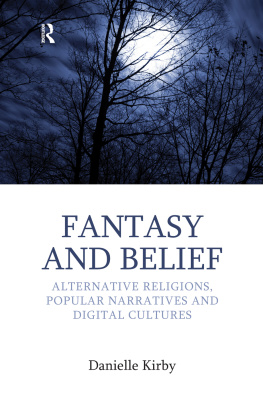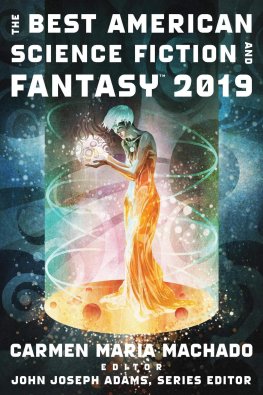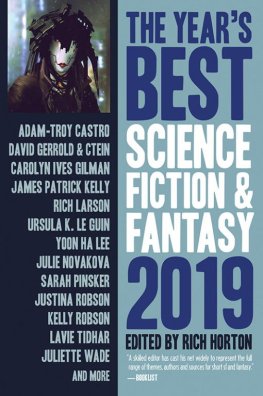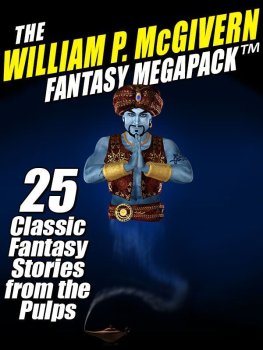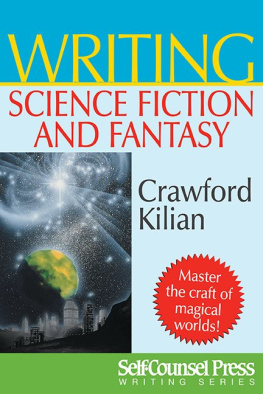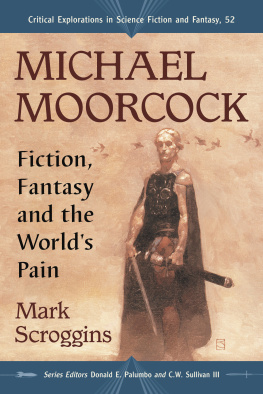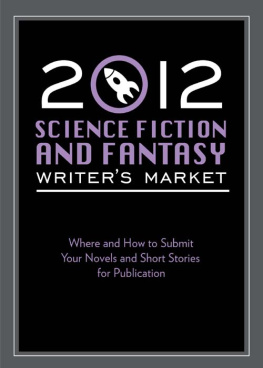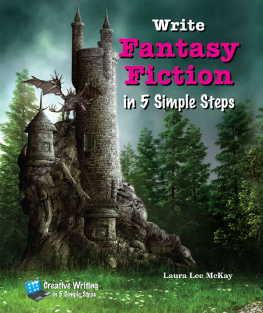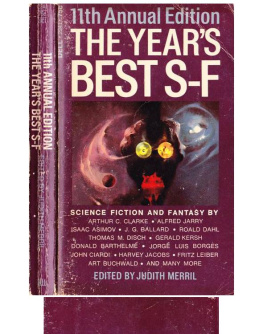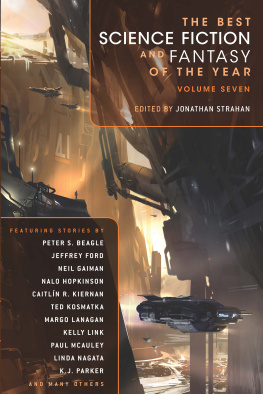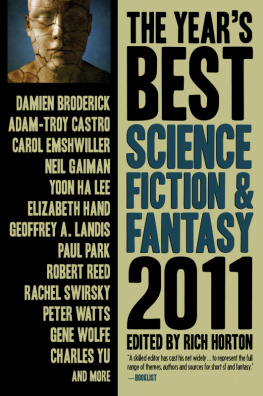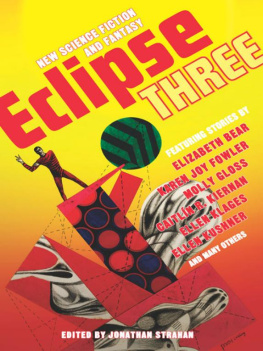
FANTASY AND BELIEF
Approaches to New Religions
Series Editors: James R. Lewis, University of Troms, & Henrik Bogdan, University of Gothenburg
Editorial Board
Gordon Melton, Institute for the Study of American Religion; Ingvild Gilhus, University of Bergen; Wouter Hanegraaff, University of Amsterdam; James T. Richardson, University of Nevada Reno; Steve Sutcliffe, Edinburgh University; Jo Pearson, University of Winchester; Massimo Introvigne, CESNUR
Published
Cults: A Reference Guide, 3rd edition
James R. Lewis
Fantasy and Belief: Alternative Religions, Popular Narratives and Digital Cultures
Danielle Kirby
FANTASY AND BELIEF
Alternative religions, popular narratives and digital cultures
Danielle Kirby

First Published 2013 by Equinox Publishing Ltd, an imprint of Acumen
Published 2014 by Routledge
2 Park Square, Milton Park, Abingdon, Oxon OX14 4RN
711 Third Avenue, New York, NY 10017, USA
Routledge is an imprint of the Taylor and Francis Group, an informa business
Danielle Kirby 2013
All rights reserved. No part of this book may be reprinted or reproduced or utilised in any form or by any electronic, mechanical, or other means, now known or hereafter invented, including photocopying and recording, or in any information storage or retrieval system, without permission in writing from the publishers.
Notices
Practitioners and researchers must always rely on their own experience and knowledge in evaluating and using any information, methods, compounds, or experiments described herein. In using such information or methods they should be mindful of their own safety and the safety of others, including parties for whom they have a professional responsibility.
To the fullest extent of the law, neither the Publisher nor the authors, contributors, or editors, assume any liability for any injury and/or damage to persons or property as a matter of products liability, negligence or otherwise, or from any use or operation of any methods, products, instructions, or ideas contained in the material herein.
ISBN: 978-1-908049-23-0 (hardback)
British Library Cataloguing-in-Publication Data
A catalogue record for this book is available from the British Library.
Library of Congress Cataloging-in-Publication Data
Kirby, Danielle, 1980
Fantasy and belief : alternative religions, popular narratives and digital cultures / Danielle Kirby.
p. cm. (Approaches to new religions)
Includes bibliographical references and index.
ISBN 978-1-908049-23-0
1. Religion and culture. 2. Mass mediaReligious aspects. I. Title.
BL65.C8K567 2013
2017dc23
2012026810
Typeset by JS Typesetting Ltd, Porthcawl, Mid Glamorgan
To David Campbell and Dr Barry Fryar
Thanks for, well, everything
CONTENTS
This book has been a long time in the making, and would not have been possible without the help and support of a number of people. First and foremost, Id like to thank Lynne Hume, who has offered both knowledge and guidance for longer than I (and probably she) would care to admit. Phillip Almond, Rick Strelan and Helen Farley have also provided invaluable advice, support and discussion, as more recently has Carole Cusack, Elizabeth Coleman, Christian McCrea, Rebecca Hill and Peter Horsfield. It would also be remiss of me not to mention the decade or so of incredible conversations had with the artists from half/theory, many of which are still ongoing, which are a source of constant inspiration. Finally, particular mention must be made of the contribution of David Campbell, who has both tolerated and participated in more conversations about dragons than he thought humanly possible.
The pagan and the paranormal have colonized the twilight zones of pop media.
This book is an inquiry into the relationship between the creation of alternative personal metaphysical systems, fantastic narrative and contemporary popular digital cultures. Focusing upon the Otherkin as an exemplary group, this project is an exploration of the bodies of knowledge that contribute to the creation of such belief systems, and contextualizes such apparently deviant beliefs within the nexus of religiosity and culture of which they are a part.
At the core of this study is a group called the Otherkin, a loosely affiliated network of individuals who believe that they are to some degree non-human. The Otherkin are by no means alone in their beliefs, but constitute a specific manifestation of religiosity particularly oriented to the late modern Western world. This book explores the origins and implications of such a belief, looking both towards contemporary Western esoteric and occult traditions as well as pertinent elements of the broader contemporary society of which they are a part. Rather than providing an exhaustive exploration of the Otherkin community, I instead focus on investigating some of the myriad influences that have supported the development of this metaphysical framework.
Of central significance here are the dual influences of speculative (primarily fantasy) fiction and communication media in the creation of alternative metaphysical systems. This relationship is an immensely complex one, and does not so much constitute a direct inheritance from the former to the latter, or vice versa, as it does related and reciprocal bodies of knowledge: convergence rather than borrowing.may be engaged with at the discretion of the participant, and yet form en masse a broadly continuous body of ideas.
Although the specific interrelation of new religions, media and fantastic narrative has yet to be delved into in depth by the broader academy, there are a number of theorists who have recognized the formative relationship between narrative fiction, popular culture and religious impulse. and the Otakukin stand as exemplars of associations of individuals who have integrated the content of narrative fiction into personally meaningful spiritual realities. Rather than providing illustrative or evocative support for other beliefs, in these cases the particular content of the relevant fictions appears to have become the object of belief in itself. Such situations, although admittedly unusual, signal the need for more detailed research into the development of these types of beliefs, and in particular require an approach that is integrative with respect to the variety of influences that are evident in these cases.
There are a number of assumptions operating here that should be made clear from the outset. First and foremost is the point that, while at first blush they may seem extremely unusual, the types of beliefs held by the Otherkin are not new, nor have they sprung up entirely in response to new technologies or other specific elements of the late modern era..
The second point is that the internet, or indeed any other form of communication media, does not suddenly and drastically alter human interaction,
A third point is that the Otherkin as a group, and other groups like it, are both responses to, and creations of, the late modern Western world. While many of the ideas involved have a lineage that reaches back into early modern and premodern times, as already mentioned, the specific manifestation of the Otherkin community is utterly located in this time and place, and as such should not be viewed in isolation of these facts. Rather than demonstrating some form of fundamental disjunction with broader society, they may be viewed as being both a product of, and oriented towards, the realities and lived experience of contemporary Western life.
Next page
